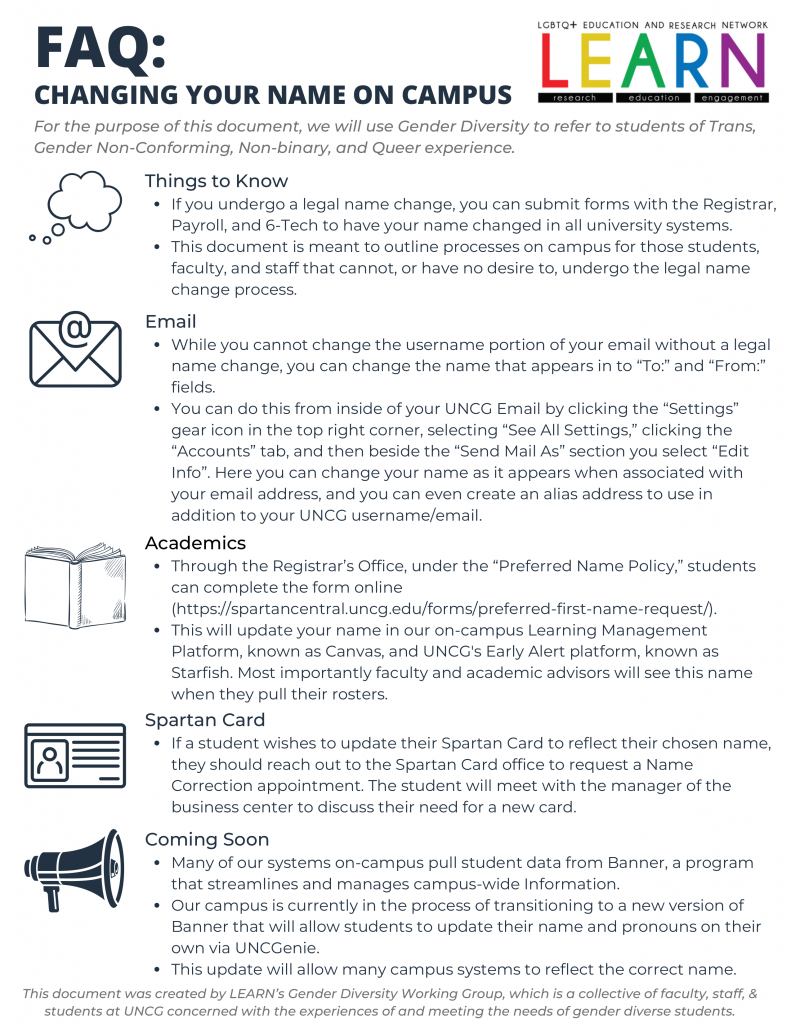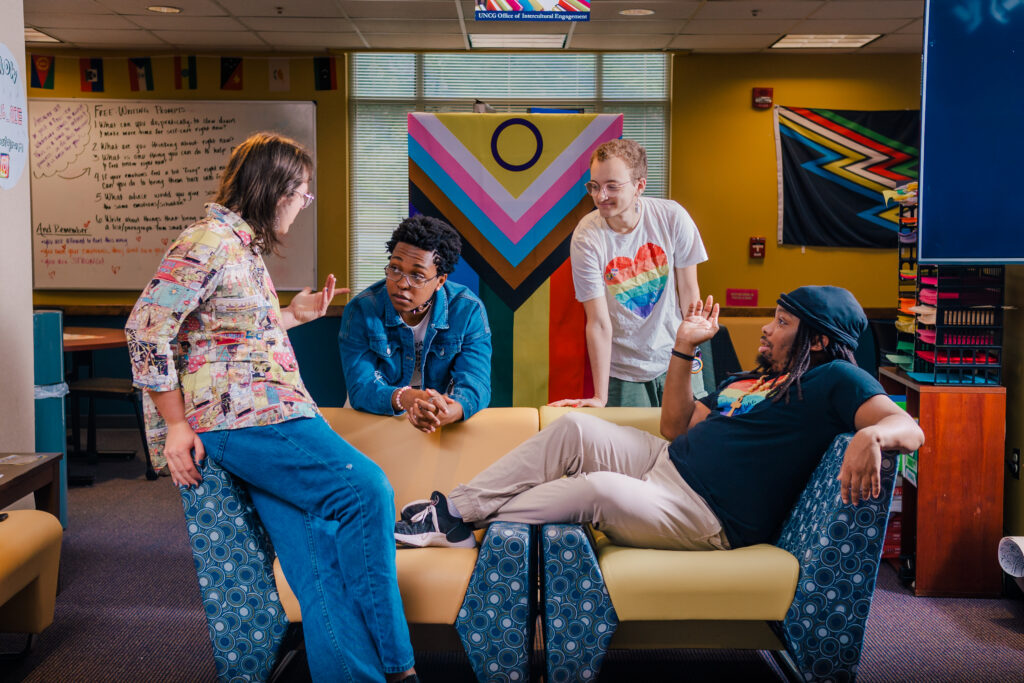LGBTQ+ Resources
Changing Your Name On Campus

UNCG Student Groups

No Labels
A student organization for Queer Students of Color and their advocates.
Q+
UNCG’s Queer Graduate Student Association, Q+, is a new organization for LGBTQ+ graduate students and allies.
To learn more about these and other groups, including who to contact with questions and how to join, check out SpartanConnect UNCG!
All Gender Restrooms
The University of North Carolina at Greensboro is committed to being an inclusive community that embraces and supports the diverse needs of our faculty, staff, students and visitors. As part of our ongoing evaluation of restroom spaces ‐ and with a core belief that everyone in our community should have ready access to them ‐ we have been working on identifying and designating certain restrooms as single-use and renaming them as all-gender.
Locations will be reviewed and adjustments made on a yearly basis to ensure the list is up to date. The University is committed to adding single occupancy restroom spaces in all new construction and major renovations of our existing facilities.
Listing of UNC Greensboro All-Gender and Single-Use Restrooms
Why Pronouns Matter
We understand that faculty, staff, students and all members of our UNC Greensboro Campus Community want to provide a warm, welcoming, and inclusive environment for one another. In regards to being more inclusive of the LGBTQ+ Community, we can do this by being more mindful about how we use pronouns.
Helpful Resource: Why Pronouns Matter For Trans People
Pronouns are words that a person may use to identify themselves instead of their chosen name. For example, she/her/hers and he/him/his are typically feminine and masculine pronouns, respectively. However, some feel more comfortable with gender-neutral pronouns. The most common gender-neutral pronouns are they/them/theirs, used in the singular to refer to an individual in a way that isn’t gendered.
Helpful Resource: Merriam-Webster Dictionary – Singular ‘They’
Common “style guides” for academic writing are moving in the direction of clarifying the usage of “they” in the singular, but some still leave the topic as murky and unaddressed.
Helpful Resource: Academic Style Guides on the Singular Pronoun ‘They’ (Indiana University Bloomington, Gender Studies)
In the past, it has been common for people to use “he/she” and “his or hers” when writing or speaking to recognize that they might be unsure of an individual’s gender. This can be problematic, as it reinforces the gender binary, erasing the narratives of those identifying outside of the confines of male, female, man, and woman.
Helpful Resource: Glossary of LGBTQ+ Terms (University of California at Davis LGBTQIA Resource Center)
Introducing yourself with your pronouns is a great way to challenge the norm that these should be assumed, while creating space for those that might identify as transgender, queer, and/or non-binary to share also. This can be done digitally by adding pronouns to your faculty/staff listing online and including pronouns in your email signature (hopefully with a link to this page to provide more in-depth information). In-person or over the phone, this can be done simply by creating space to share your pronouns when introducing yourself to others. For example, “Hello there, my name is Taylor and I use they/them/theirs pronouns”. While they/them/theirs is the most popular gender-neutral pronoun, there are several others referenced in the graphic linked below.
Helpful Resource: Gender Pronouns (Trans Student Educational Resources)
Neopronouns are a category of new (neo) pronouns that are increasingly used in place of “she,” “he,” or “they” when referring to a person. Some examples include: xe/xem/xyr, ze/hir/hirs, and ey/em/eir. Neopronouns can be used by anyone, though most often they are used by transgender, non-binary, and/or gender nonconforming people.
Helpful Resource: Neopronouns Explained (UNCG Office of Intercultural Engagement)